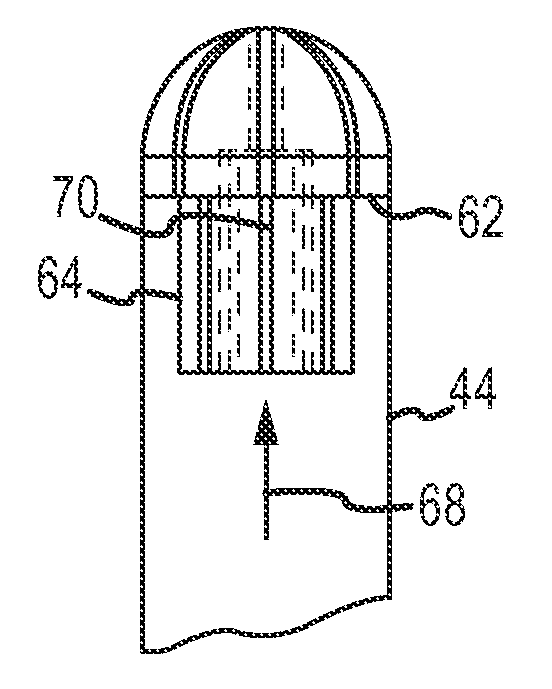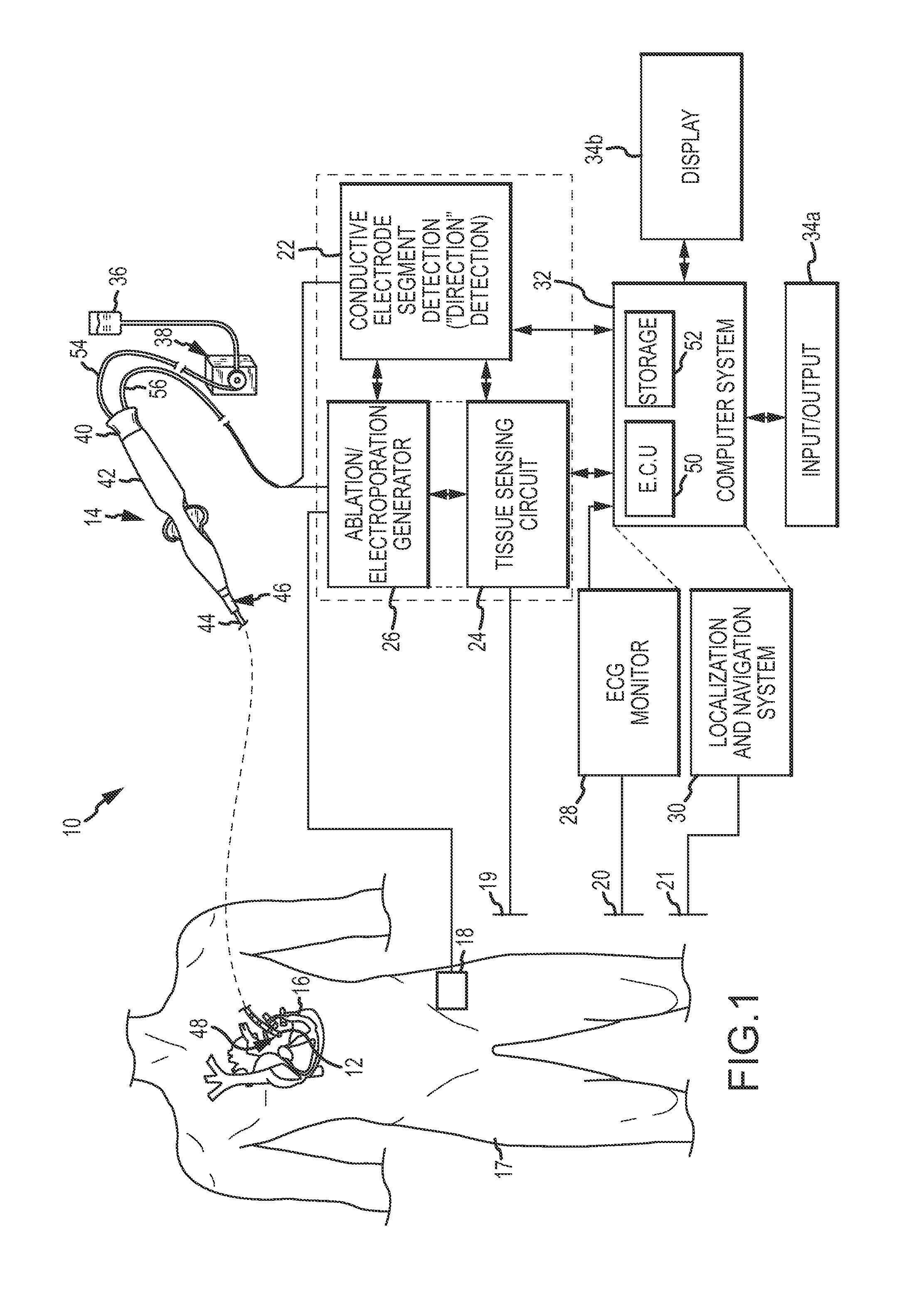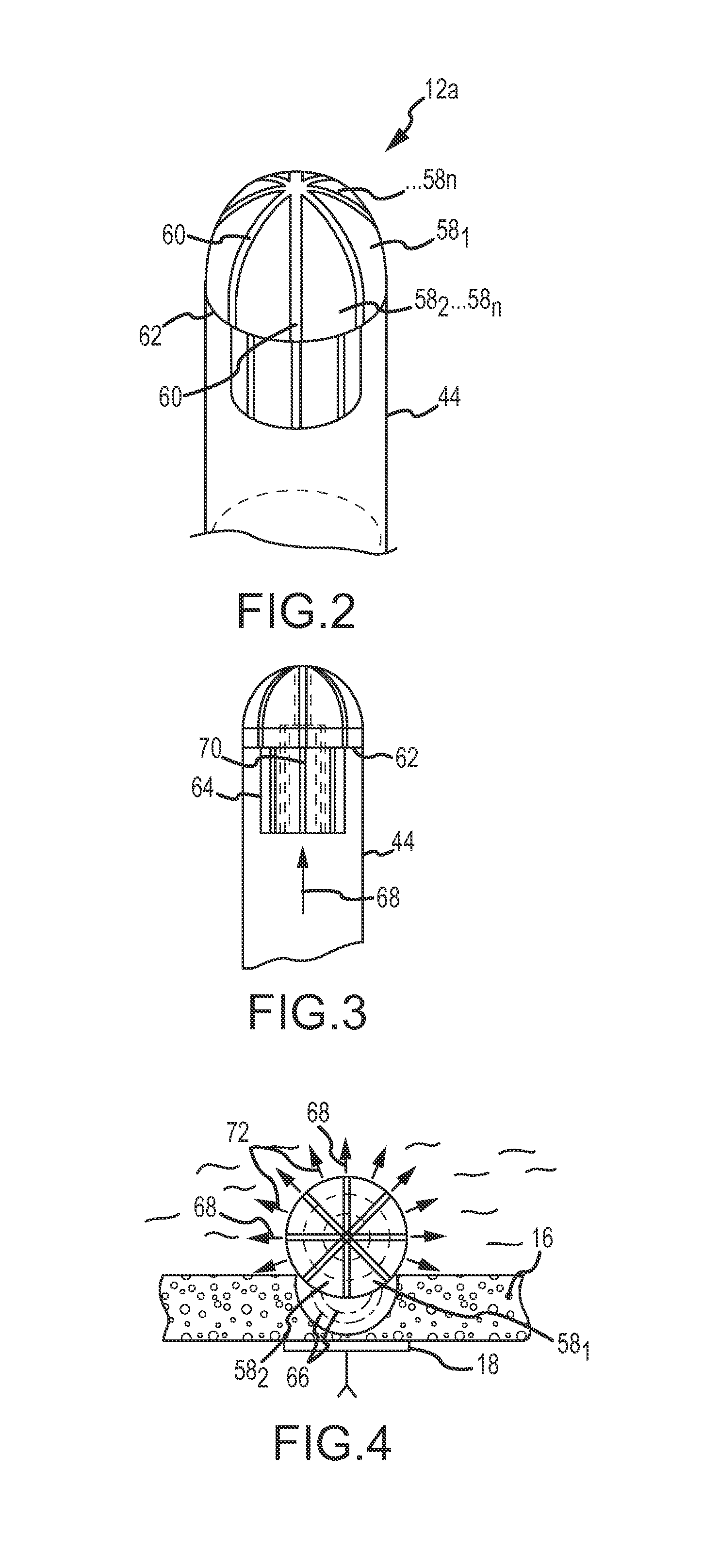Catheter systems
- Summary
- Abstract
- Description
- Claims
- Application Information
AI Technical Summary
Benefits of technology
Problems solved by technology
Method used
Image
Examples
Embodiment Construction
[0031]Referring now to the drawings wherein like reference numerals are used to identify identical components in the various views, FIG. 1 is a diagrammatic and block diagram view of a system 10 in connection with which direction-sensitive multi-polar or multi-array electrode assemblies for electroporation therapy may be used. In general, the various embodiments include an electrode assembly disposed at the distal end of a catheter. The electrode assembly comprises a plurality of individual, electrically-isolated electrode elements. Each electrode element is individually wired such that it can be selectively paired or combined with any other electrode element to act as a bipolar or a multi-polar electrode for both sensing (more below) and electroporation energization purposes. FIGS. 2-17 show various embodiments featuring direction-sensitive multi-polar or multi-array electrode assemblies. In the sensing mode, the electrode elements are electrically scanned to detect or identify whi...
PUM
 Login to View More
Login to View More Abstract
Description
Claims
Application Information
 Login to View More
Login to View More - R&D
- Intellectual Property
- Life Sciences
- Materials
- Tech Scout
- Unparalleled Data Quality
- Higher Quality Content
- 60% Fewer Hallucinations
Browse by: Latest US Patents, China's latest patents, Technical Efficacy Thesaurus, Application Domain, Technology Topic, Popular Technical Reports.
© 2025 PatSnap. All rights reserved.Legal|Privacy policy|Modern Slavery Act Transparency Statement|Sitemap|About US| Contact US: help@patsnap.com



